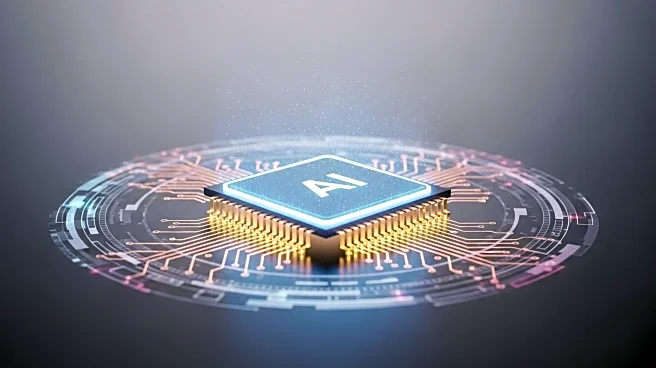What's Happening?
Dr. Heidy Khlaaf, a graduate of Paxon School for Advanced Studies, has been recognized by TIME Magazine as one of the 100 Most Influential People in Artificial Intelligence for 2025. Serving as the Chief Scientist at the AI Now Institute, Dr. Khlaaf was honored in the 'Thinkers' category for her contributions to evaluating the safety and risks associated with artificial intelligence in critical systems, including nuclear power plants, weapons systems, and healthcare. Dr. Khlaaf attributes her success to her interdisciplinary education at Paxon, which provided her with a broad perspective on technology. She also acknowledges the significant influence of her former AP Art History teacher, Dr. Mai Keisling, in her academic journey.
Why It's Important?
Dr. Khlaaf's recognition highlights the growing importance of evaluating AI's role in safety-critical systems, a field that is increasingly relevant as AI technologies become more integrated into essential infrastructure. Her work at the AI Now Institute addresses the potential risks and safety concerns of AI applications, which is crucial for ensuring the reliability and security of systems that impact public safety and national security. This acknowledgment by TIME Magazine underscores the need for continued research and oversight in AI development, particularly in areas that could have far-reaching consequences for society.
What's Next?
Dr. Khlaaf's recognition may lead to increased attention and funding for research into AI safety and risk assessment. As AI continues to evolve, her work could influence policy decisions and regulatory frameworks aimed at safeguarding critical systems. Stakeholders in technology, government, and industry may seek to collaborate with experts like Dr. Khlaaf to develop standards and practices that ensure AI technologies are implemented responsibly and safely.
Beyond the Headlines
The acknowledgment of Dr. Khlaaf's work by TIME Magazine may inspire educational institutions to emphasize interdisciplinary studies, fostering a new generation of thinkers who can address complex technological challenges. Her story also highlights the impact of dedicated educators in shaping future leaders in technology and science.










